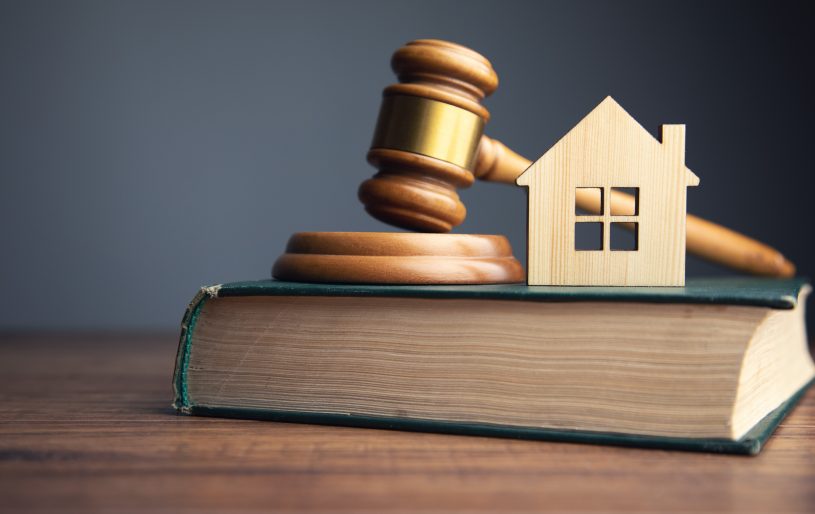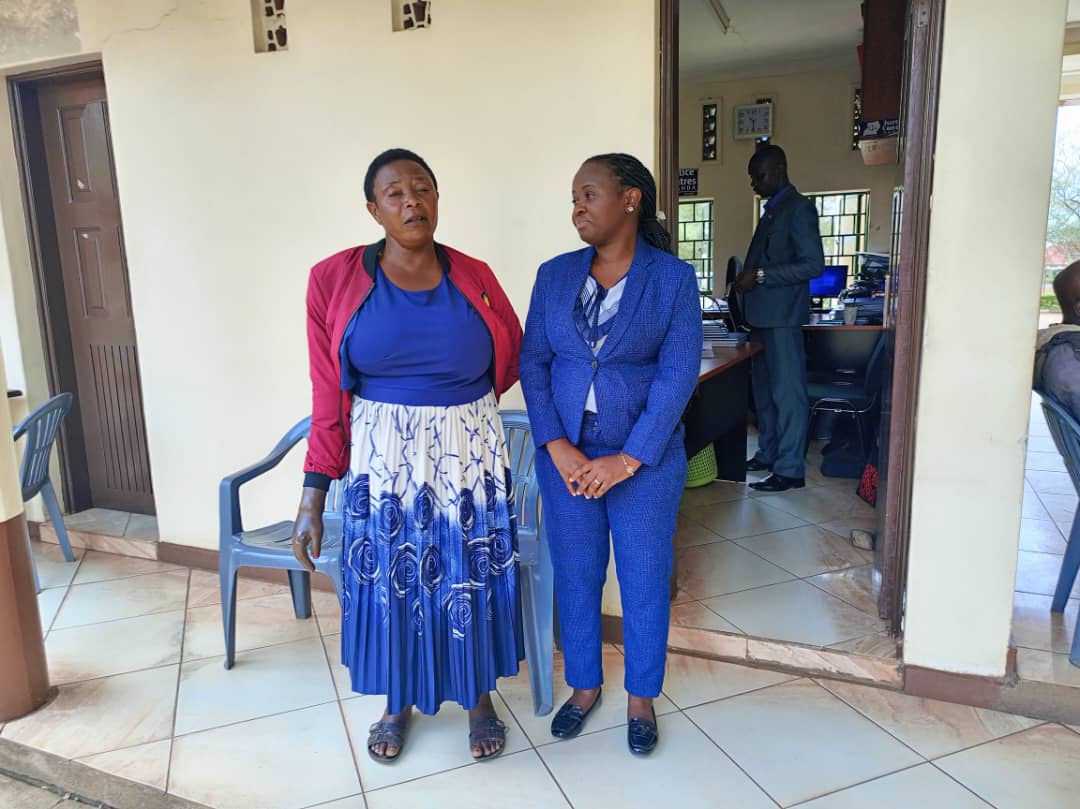Who is a landlord?
A landlord refers to a property owner (including their authorized agent) who rents or leases that property (such as land, houses, or apartments) to another party in exchange for rent payments.
Landlords can be individuals, businesses, or other entities.
Who is a tenant?
A tenant is someone who rents or leases property (e.g. a house, land, apartment, etc.), from a landlord at an agreed fee (rent).
Tenants can be individuals, a business, group, etc.
Law governing landlord-tenant relationships in Uganda:
The landlord-Tenant relationship in Uganda is governed by the Landlord and Tenant Act, 2022.
The Landlord and Tenant Act, 2022 regulates the relationship between landlords and tenants, modifies and consolidates the law relating to the rent of premises, and specifies landlords’ and tenants’ responsibilities for letting of premises.
Specific duties and obligations of each party are normally outlined in a tenancy agreement.
What is a Tenancy agreement?
This is a contract between the landlord and the tenant who wants to live in or utilise the property for an agreed period of time and for an agreed payment.
The agreement may be made:
- in writing, or
- by word of mouth, or
- partly in writing and partly by word of mouth, or
- in the form of a data message or
- implied from the conduct of the parties.
Where the rent is 500,000 Uganda Shillings or more, the agreement should be in writing or in the form of a data message for it to be enforceable.
Upon the tenancy agreement being signed by both parties, the landlord should give a copy of it to the tenant.
Where a tenancy agreement is not in writing, the landlord is mandated to keep a record of the following information: particulars of the tenant(s), the premises occupied by the tenant(s), details of the immigration status if the tenant is a non-citizen, details of the rent payable & manner in which it is payable.
Upon putting the above mentioned information together, the landlord should give a copy of that record to the tenant within 14 days of the tenant occupying the premises.
NOTE: A landlord is barred by the law from entering into a tenancy agreement with someone who does not provide their national identification or any other identification document (e.g. passport, driving permit, certified student identification card). It is therefore mandatory for the tenant to provide a form of identification to the landlord before they can rent the premises.
Rights and responsibilities of landlords under the law:
Issuance of receipt:
- Upon payment of the rent as agreed upon under the agreement, the landlord has a duty to issue a receipt to the tenant.
- A receipt shall be issued immediately where payment is made in person or within five (5) working days of receiving the payment where payment was not made in person.
- The receipt shall include, among others, the amount of and period for which the rent is paid.
- The landlord should keep a record of all receipts of payments of rent.
Quiet Enjoyment of premises:
- The landlord shall take all reasonable steps to ensure that the tenant has quiet enjoyment of the premises during their tenancy.
Non-discrimination:
- The Landlord shall not refuse to rent on grounds of sex, race, colour, ethnic origin, tribe, birth, creed or religion, social or economic standing, political opinion or disability.
Right to enter premises:
- The landlord or his/her agent has the right to enter the premises to inspect the condition of the premises upon giving the tenant at least twenty four hours’ notice in writing/ message/ by word of mouth. Notice can only be waived in case of an emergency.
Maintenance and Repairs to the premises:
- Landlords are required to keep the premises maintained in good repair. However, this does not apply to repair of damage caused by the tenant’s negligence or failure to take reasonable care.
- Where a tenant damages the premises, the landlord shall serve the tenant with a notice to repair the damage within 14 days.
- Where a tenant carries out urgent repairs to the premises not caused by their negligence e.g. burst water pipes, blocked or broken toilet systems, serious roof leaks, gas leaks, dangerous electrical faults, flooding or serious flood damage, serious storm or fire damage etc., the landlord is obligated to reimburse the tenant the costs of the repair within fourteen days after receiving the notice.
- Landlords must ensure that the residential premises being rented out are fit for human habitation at the start and during the tenancy.
- Note: In determining whether residential premises are “fit for human habitation”, regard shall be given to the condition of the premises in respect of repair, stability, internal arrangements, natural lighting, ventilation, water supply, drainage and sanitary conveniences and facilities for preparation and cooking of food and for the disposal of waste water.
Taxes and rates:
- The landlord is responsible for the payment of all taxes and rates imposed by law in respect of the premises.
- Where the tenant pays any taxes or rates in respect of the premises, the landlord shall compensate the tenant for the amount paid by the tenant.
Utility charges:
- The landlord is liable for the payment of charges on utilities (e.g. electricity, water, gas, sewerage/ drainage etc.) that are utilized collectively by all tenants.
Notice of eviction & entering premises:
- If a tenant fails to pay his or her monthly rent, the landlord can issue a 30-day (at least) notice of eviction. If the tenant still fails to pay up the arrears after the notice, the landlord or his/her agents may at any time re-enter upon the premises and repossess it.
Rights and responsibilities of tenants:
Quiet possession and enjoyment of premises:
- A tenant has the right to quiet possession or enjoyment of the premises as long as they have paid rent and complied with all the other terms of the tenancy agreement. In such instances, they have a right to live on the premises undisturbed by the landlord.
Identification documentation:
- A tenant can take up the premises only when he/ she provides his or her national identification card or alien’s identification card, or any other identification document including; a national identification card, driving permit, passport, or certified student identification card.
Rent and Utility charges:
- The tenant has a duty to pay rent on the date and in the manner agreed upon by the landlord and tenant.
- However payment of the rest of the utility charges apart from rent shall depend on the terms agreed upon in the tenancy agreement. These charges may include: water rates, electricity charges, garbage collection charges, security charges, and any other charges imposed that are individually utilized by the tenant.
- The tenant shall pay rent on the date and in the manner agreed upon by the landlord and the tenant and is entitled to receive a receipt from the landlord upon payment.
- Rent denominations should be in Uganda shillings unless there is a contrary agreement.
Use of premises:
- A tenant is supposed to use the premises for the intended purposes only as initially agreed upon in the tenancy agreement and should not use or permit the premises to be used for any illegal purposes.
- The tenant shall not use the rented premises to cause a nuisance or interference.
Maintenance and repair of premises:
- The tenant is required to keep in good and clean condition the premises and fixtures during their tenancy and upon handing them over to the landlord at the time of their departure. The compound, fence, and paths must be kept in good order and condition.
- A tenant must first get the consent of the landlord before installing fixtures or making alterations to the rented premises e.g. drilling nails in the walls of the premises or cutting timber or main trees, bushes or shrubs planted there. Where such fixtures or alterations are made, the tenant is liable to meet the costs of restoring the premises to the condition they were in before.
- The tenant must make good (repair) any damage occasioned to the premises by the tenant on any furniture and fittings or other articles, objects or things on the premises or pay to the landlord the cost of repairing or replacing any part of the premises or fittings which are damaged by the tenant or lost through his/ her negligence.
- Where a tenant damages the premises or common areas, the landlord shall serve the tenant with a notice to repair the damage, to which the tenant must comply within 14 days.
Access to the premises:
- The tenant must permit the landlord or his/ her authorised agents at reasonable times to enter the premises or any part thereof after twenty-four hours’ notice, to examine the state and condition of the premises.
Subletting premises:
- The tenant cannot assign, sublet or part with possession of any part of the premises without the prior written consent of the landlord which consent should not be unreasonably withheld by the landlord.
- Any assignment or sublease without the consent of the landlord is invalid and immediately terminates the tenancy.
Failure to pay rent (Notice of eviction):
- If a tenant fails to pay rent as per the agreement, the tenant has a right to be given a 30-day (at least) notice of eviction.
Respect terms & conditions:
- A tenant has a duty to respect the terms and conditions under which the premises were rented out to them.
Urgent repairs & re-imbursement:
- The tenant may carry out urgent repairs to the premises. The urgent repairs can include; burst water pipes; blocked or broken toilet systems; serious roof leaks; gas leaks; dangerous electrical faults; flooding or serious flood damage; serious storm or fire damage. The landlord shall within fourteen days after receiving the notice, reimburse the tenant the costs of the repair.
- Where the landlord does not reimburse the tenant, the tenant shall recover the costs incurred for the repairs from the rent due immediately after the repairs are carried out.
GENERAL DUTIES AND OBLIGATIONS:
Rent:
- Payment of rent:
- A landlord letting out a business premise in a city or municipal is obligated/ legally mandated to provide the tenant with his/ hers bank account into which all rent payments will be deposited.
- The parties (landlord and tenant) have the liberty to determine the amount of rent payable.
- Limits on payment of rent in advance:
- Unless the tenant and landlord mutually agree, a landlord shall not require a tenant, in the case of a tenancy of more than one month, to pay rent more than three (3) months in advance or in case of a tenancy less than a month, to pay rent more than two (2) weeks in advance.
- Limits on increase of rent and notice:
- Except where the landlord and tenant clearly agree in the tenancy agreement, a landlord shall not increase the rent at a rate of more than ten percent (10%) annually.
- The landlord is mandated to give a notice of at least sixty (60) days (preferably in writing) to the tenant of a proposed increase in rent.
- Under a fixed term tenancy, a landlord shall not increase the rent before the term ends, unless the tenancy agreement provides for rent increase within the fixed term.
- A landlord shall not increase the rent payable under the tenancy at intervals of less than twelve (12) months.
- An increase in rent is not valid/ lawful if it contravenes the above. It is only valid if the tenant does not object or if they reach an agreement with the landlord for the increase to be made. Such a tenant is deemed to have accepted the rent increment.
- Decrease of rent:
- The landlord shall decrease rent in certain cases e.g. where the landlord ceases to provide any agreed services with respect to the tenant’s occupancy of the premises. Such decrease must be proportionate to the decrease of the services.
- Failure to pay rent by the tenant and claims for rent arrears:
- Where a tenant defaults in paying rent and is in arrears, the landlord may apply to a court of competent jurisdiction to recover the rent owed.
- Additionally, where the default continues for a period of more than thirty (30) days, the landlord shall be entitled to re-enter the premises and take possession in the presence of an area local council official and the police.
Security Deposit:
- Requirement to pay security deposit:
- A landlord shall require the tenant to pay a security deposit for purposes of ensuring the tenant performs their obligations under the tenancy.
- The landlord shall specify to the tenant in writing the terms and conditions under which the security deposit or any part of it may be withheld by the landlord upon termination of the tenancy.
- The landlord shall provide the tenant with a written receipt of the security deposit.
- Limits on payment of security deposit:
- A landlord shall not require more than one security deposit.
- A Landlord is not permitted to charge a security deposit that exceeds one month’s rent or one-twelfth of the rent for one year’s occupancy of the premises, whichever is the lesser.
Forms of Termination of Tenancy
A tenancy cannot be terminated except in accordance with the Landlord and Tenant Act or the Tenancy Agreement. These are various forms in which a tenancy can be terminated:
- Termination by agreement:
A tenancy may be terminated by agreement of the landlord and tenant and should specify the date on which the tenant shall vacate the premises.
- Termination by vacation of premises with the consent of the landlord:
This tenancy terminates where the tenant vacates the rented premises with the consent of the landlord. This consent may be written or oral and once given, it cannot be revoked.
- Termination by expiry of term or event:
Where a tenancy is for a fixed term, it terminates on the date specified for termination.
If it is based upon the occurrence of an event, then it is terminates on occurrence of such event.
- Termination after notice:
This terminates where the landlord or tenant give notice of termination of the tenancy in accordance with the terms of the Tenancy Agreement or the Act.
- Termination by Abandonment:
This occurs where the tenant leaves the premises permanently without terminating the tenancy agreement. In such cases, the landlord still has a right to recover any accrued/ unpaid rent or charges.
Where the landlord has reasonable cause to believe that the tenant has abandoned the premises, he/she shall give notice of fourteen (14) days to the tenant of the landlord’s intention to terminate the tenancy.
Where the tenant does not reply to the notice or doesn’t give a satisfactory explanation after the fourteen (14) days’ notice, the tenancy terminates.
A tenant is viewed as having permanently abandoned the premises where:
- He/ she has been absent from the premises for at least thirty (30) consecutive days without notifying the landlord and the rent has not been paid.
- At least fifteen (15) days have passed since the rent was due and it remains unpaid and it appears to the landlord that the tenant has vacated the premises without paying rent.
- Termination upon death of sole tenant:
Upon the death of a single tenant occupying the premises, the tenancy terminates. At the earliest of the following dates:
- Twenty eight (28) days after the landlord is given written notice of the death of the tenant by the tenant’s next of kin;
- Twenty eight (28) days after the landlord has given notice to vacate to the next of kin of the deceased tenant;
- A date agreed in writing between the landlord and the next of kin of the deceased tenant.
- A date specified by the court on application by the landlord.
Notice of Termination of Tenancy:
- In cases of residential tenancy, notice of termination in case of a:
- i) weekly tenancy shall be seven (7) days’ notice;
- ii) monthly tenancy shall be thirty (30) days’ notice;
iii) yearly tenancy shall be sixty (60) days’ notice.
- However, the landlord and tenant may agree upon a notice period exceeding the above notice periods but not a lesser notice period.
Challenging termination of tenancy:
- Either the tenant or landlord can challenge a termination of a tenancy agreement in court.
- While in the process of challenging the termination in court, a tenant is liable to pay rent.
- Some of the remedies issued by court may include: an order to reinstate the tenancy, an award of damages or any other remedy.
- Any of the parties dissatisfied with the decision of court may appeal.
Vacation of premises and eviction
- Refusal by tenant to vacate the premises:
Where a tenant does not vacate the premises upon receiving notice of termination, the landlord has a right to re-enter the premises and take possession in the presence of the area local council officials and the police where the tenant refuses to vacate the premises upon termination of the tenancy.
- Unlawful eviction of tenant:
- Where a tenant is unlawfully evicted (i.e. not in accordance with the Act or the terms of the tenancy agreement) the tenant is entitled to challenge such eviction in court. The court may order the landlord to pay the tenant the equivalent of three (3) months’ rent payable as compensation, and in addition, payment of any damages arising from the unlawful eviction, among other reliefs.











